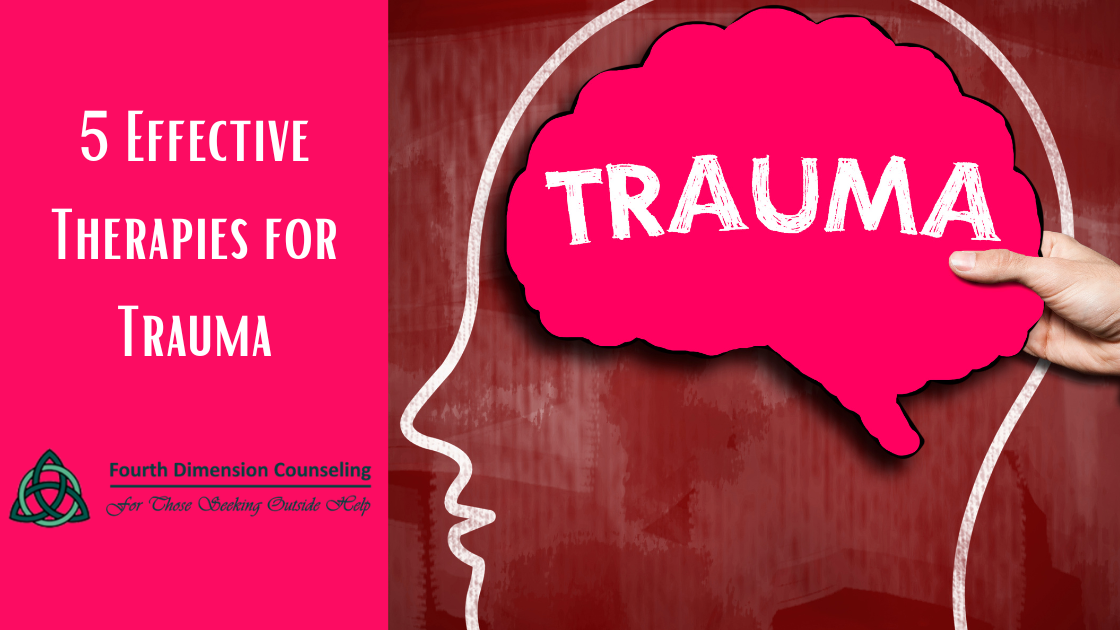
Trauma can be a deeply distressing experience that can leave a lasting impact on a person’s mental and emotional well-being. Fortunately, there are several effective therapies available that can help individuals cope with and recover from trauma. In this article, we will discuss 5 effective therapies for trauma.
Trauma Therapy
- Cognitive Behavioral Therapy (CBT): Cognitive Behavioral Therapy (CBT) is a type of talk therapy that focuses on changing negative patterns of thought and behavior. CBT helps individuals identify and challenge their negative thoughts and beliefs about themselves and the world around them. The therapist works with the individual to develop coping strategies and problem-solving skills that can be used to manage symptoms of trauma. CBT is an evidence-based therapy that has been shown to be effective in treating trauma.
- Eye Movement Desensitization and Reprocessing (EMDR): Eye Movement Desensitization and Reprocessing (EMDR) is a specialized therapy that helps individuals process traumatic memories. During EMDR therapy, the therapist guides the individual through a series of eye movements, sounds, or taps while they recall the traumatic event. This process helps the individual process the traumatic memory and reduce the intensity of their emotional response to it. EMDR is an evidence-based therapy that has been shown to be effective in treating trauma.
- Trauma-Focused Cognitive Behavioral Therapy (TF-CBT): Trauma-Focused Cognitive Behavioral Therapy (TF-CBT) is a specialized form of CBT that focuses specifically on trauma. This therapy is designed to help children and adolescents who have experienced trauma. TF-CBT involves teaching coping skills, relaxation techniques, and cognitive restructuring to help the individual manage the symptoms of trauma. The therapist may also involve family members or caregivers in the therapy to help provide support for the individual. TF-CBT is an evidence-based therapy that has been shown to be effective in treating trauma in children and adolescents.
- Dialectical Behavior Therapy (DBT): Dialectical Behavior Therapy (DBT) is a type of therapy that focuses on teaching individuals coping skills to manage intense emotions. DBT is often used to treat individuals with borderline personality disorder, but it has also been shown to be effective in treating trauma. DBT involves teaching mindfulness techniques, emotion regulation, distress tolerance, and interpersonal effectiveness skills. DBT is an evidence-based therapy that has been shown to be effective in treating trauma.
- Prolonged Exposure Therapy (PE): Prolonged Exposure Therapy (PE) is a type of therapy that involves gradually exposing the individual to the traumatic event they experienced. The therapist works with the individual to develop coping skills and relaxation techniques that can be used during the exposure process. The goal of PE is to help the individual confront and process the traumatic memory, reducing the intensity of their emotional response to it. PE is an evidence-based therapy that has been shown to be effective in treating trauma.
In conclusion, there are several effective therapies available that can help individuals cope with and recover from trauma. Cognitive Behavioral Therapy (CBT), Eye Movement Desensitization and Reprocessing (EMDR), Trauma-Focused Cognitive Behavioral Therapy (TF-CBT), Dialectical Behavior Therapy (DBT), and Prolonged Exposure Therapy (PE) are all evidence-based therapies that have been shown to be effective in treating trauma. If you or someone you know has experienced trauma, it may be helpful to seek out the support of a mental health professional who can provide guidance and support in choosing the most appropriate therapy for their needs.
More Advice:
- Do I Need to See a Counselor for Love Addiction?
- Simple Ways to Reduce Stress
- Sex Victims Can Experience PTSD
- Emotions and How to Process Them
- Sex Addiction Counseling
- How Do I Know it’s Time to Get professional Counseling?
- How to Heal from Betrayal Trauma
- What is PTSD? – (Government Help)
- The Mental Health Effects of Sexual Abuse
- The 4 Types of Intimacy
- 5 Ways to Reduce Stress
- What is Co-Dependency?
- How Same-Sex Couples Counseling is Different
- How to Know it’s Time to Get Mental Help
- How to Find a Great Relationship Counselor
- What if I Can’t Get in to See a Counselor?
